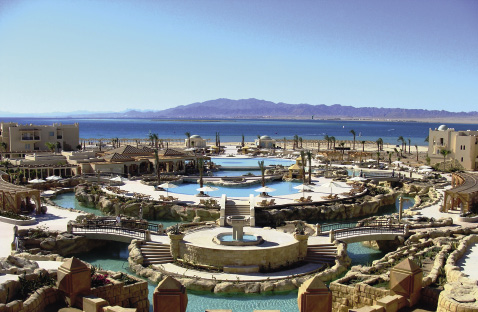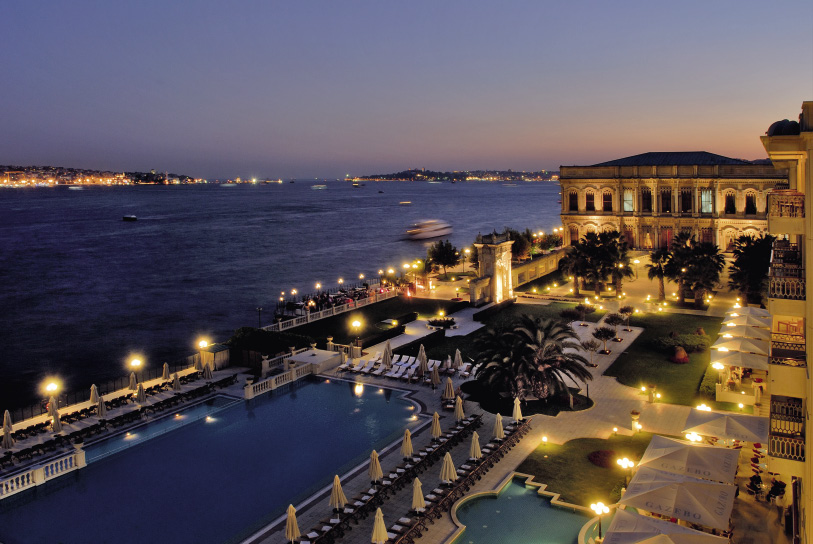- Home
- Media Kit
- Current Issue
- Past Issues
- Ad Specs-Submission
- Ad Print Settings
- Reprints (PDF)
- Photo Specifications (PDF)
- Contact Us

![]()
ONLINE

Selling European Lifestyle
Editors’ Note
Reto Wittwer began his career at The Westin Palace Hotel in Madrid and has since lived and worked in Paris, Tehran, Singapore, Hong Kong, Montreal, Acapulco, Indonesia, and Korea. He has worked for InterContinental, Mandarin Oriental, Peninsula, Le Méridien, and Hyatt and has been the CEO of three hotel companies – Swissôtel, CIGA, and Kempinski. He assumed his current posts in 1995. Wittwer was educated at Switzerland’s Hotel Culinary School and Ecole hôtelière de Lausanne.
Company Brief
Kempinski Hotels (www.kempinski.com) is Europe’s oldest and most established luxury hotel collection having been founded in 1897. With more than 60 deluxe properties in major cities and vacation spots throughout Europe, the Middle East, Africa, and Asia, each hotel or resort is a distinctive property that celebrates the cultural traditions of its location.
How much of an impact did you see on Kempinski and your properties as a result of the recession and were you surprised at how deep the crisis was?
On the whole, we have emerged stronger from the economic crisis and have laid the foundations for further growth. But it wasn’t easy. For those that were only an American company operating in America, it was easier. Kempinski is operating in different markets and with different issues.
In Switzerland, for example, we have three hotels. One is located in St. Moritz, which is a very fashionable ski resort, and therefore it is already at a high rate. As the summer brings in different clientele than in winter – they’re not the jet-set types – we decided to shorten the seasons and closed the hotel one and a half months earlier than usual.
In Europe, Germany is doing extremely well – it is our core market where we have 11 hotels.
The Middle East is booming in Abu Dhabi and Dubai again and we recently opened a landmark property on Palm Jumeirah.
Bangkok is somewhat in between – people are watching what will happen politically; Jakarta is flourishing and China also does very well – here we have another 10 hotels in the pipeline with openings scheduled up to 2015.
Taken as a whole, we have been doing very well. But we still have some challenges in Cairo due to the political situation and in Switzerland due to the high Swiss franc. All other properties are in markets that are continuing to grow.
Is there opportunity today for going into new development or additional hotels?
When your key markets are suffering, you retract and concentrate to safeguard whatever you can, but that is not our case. Our plan is to double our portfolio to 120 properties until 2015 – growing over all regions – and we are well on the way. We are, for example, aggressively moving into Africa where we have eight projects in West Africa, mostly takeover hotels where owners weren’t happy with the performance. A lot of companies don’t understand Africa and are afraid of it. The point is, if you’re the number-one hotel in town somewhere in Africa, you’re running a full house practically year-round – and there is almost no competition.

Pools at Hotel Soma Bay, Egypt
How do you define a true luxury experience today?
Forty years ago, when these large American hospitality companies came onto the market, every hotel was five-star and they defined a new way of luxury.
These hotel chains to my mind do not represent luxury anymore. Luxury is defined in Europe as a product or lifestyle so cars, jewelry, fashion, and the European savoir-vivre define the word.
The overuse of the word luxury has brought about the six- or seven-star hotel, which is actually nonexistent. Today you can see an absolute abuse and misuse of the word luxury.
Luxury needs to be redefined and cannot be explained – it has to be experienced and everyone has their own definition of what luxury means to them.
We sell European lifestyle, which means people take time to live and enjoy the little things in life and we accompany them in a discreet way and with excellent services.
Is it tough today to find the right balance offering the necessary technology but not losing the personal touch?
I don’t think that’s the point. The necessary technology is the hardware each and every hotel has to offer. You have to be up-to-date regarding, for example, WiFi and so on – that’s basic. The difference with Kempinski is our endogenous service. We hire people for what they are, not for what they’re not. We want them to be attentive, not actors.
I’m fundamentally against cloning behavior and giving out pat responses that are based off a script. Our staff may say less, but when they say something, they are authentic and, therefore, credible. Our main objective is to make our guests happy. Therefore you have to spend time with them and try to understand them by carefully listening.

Ciragan Palace Kempinski Istanbul
Kempinski has been instrumental in the growth of the Global Hotel Alliance (GHA). How has GHA evolved and what value does the organization bring?
At the beginning, it allowed us to be more present in markets that we couldn’t afford to be in because of our size. The idea was to expand our reach without doubling our costs. Within the next three years, we will bring in individual hotels that we hand pick and add them to the network so we eventually become present everywhere.
Today, for us as a shareholder, GHA is also financially extremely successful, which wasn’t the original intention. The company has a value that we assess is in the double digit millions.
But the loyalty program is second to none and it’s working very well.
You’ve spent many years leading in hospitality. Do you still enjoy the business that much?
I take enormous pleasure in talking to young people. They talk about this business as I used to and I’m rejuvenating by spending a lot of time with them – 50 percent of my time is spent growing the right talent pipeline and I get satisfaction when they succeed.
This is a beautiful industry. Being the ultimate servant in hospitality gives me pleasure. I like to be accommodating and help others – it drives me to continue.•